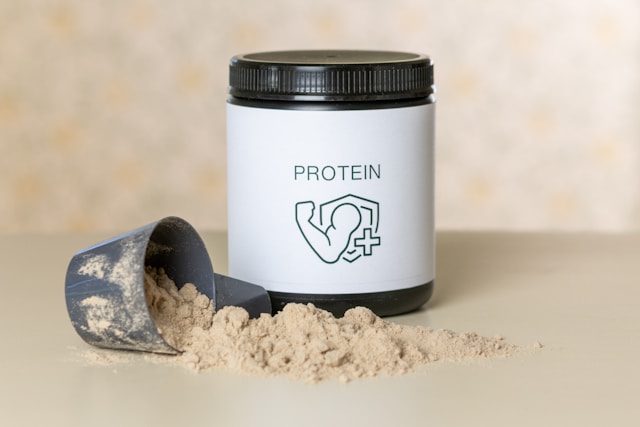


The global protein supplement market has seen significant growth in recent years, with its value estimated to be between $24 and $28 billion USD in 2024. This figure is expected to double by 2034, as protein powders are increasingly embraced by a wide range of people beyond just athletes.
So, what are these powders made of? Are they safe? Are they superior to the protein found in regular food, or is it better to get protein from natural sources?
Before answering these questions, it’s helpful to understand the importance of protein, its various sources, and how much we should be consuming.
Protein: A Tool for Building and Repair
Protein is crucial for human health. It plays a vital role in numerous biological functions. Proteins are made of amino acids, which serve as the building blocks for cells, tissues, enzymes, and other essential compounds that sustain life.
Some of protein’s key functions include:
Protein is particularly important during periods of growth (such as in children), pregnancy, and aging (as it helps prevent age-related muscle loss). It also supports general health and recovery from illness.
Sources of Protein
Protein can be obtained from animal sources—such as red and white meat, fish, eggs, and dairy—or from plant sources, such as legumes (like beans, lentils, and chickpeas), tofu, nuts, seeds, and whole grains.
Some studies suggest that animal protein is superior to plant-based protein because it is considered a “complete” protein—it contains all nine essential amino acids in sufficient quantities. Most plant-based protein sources are deficient in one or two of these amino acids. Therefore, vegetarians are advised to consume a variety of plant foods that together provide all essential amino acids.
Animal proteins are also generally easier to digest and more efficiently utilized by the body than plant proteins. They often contain other important nutrients such as iron, vitamin B12, omega-3 fatty acids, and vitamin D—nutrients that are rare in plant-based sources.
How Much Protein Do We Need?
Health authorities in the United States recommend that adults consume 0.8 grams of protein per kilogram of body weight per day. For example, an adult weighing 70 kg should consume around 56 grams of protein daily. Children and adolescents require more, depending on their age and growth stage.
Studies also suggest that pregnant and breastfeeding women need extra protein. Additionally, research indicates that as we age, our protein needs increase to help prevent muscle loss and physical decline. Athletes require even higher protein intake to improve performance and support muscle growth and recovery.
However, some research has raised concerns about the traditional method used to determine protein needs—known as the "nitrogen balance method"—suggesting that people may need more than the current recommendations.
Greg Nuckols, an academic researcher in sports science and metabolism, told BBC Arabic that using a new method that measures amino acid oxidation, researchers found that the amount of protein likely needed by 95% of the population is closer to 1.2 grams per kilogram of body weight. He adds that other studies focusing on factors such as appetite regulation, weight control, and preventing strength loss with aging also support this higher intake.
Nuckols states that athletes’ protein needs are even higher, reaching around 2 grams per kilogram of body weight to achieve optimal results, since “intense exercise can damage muscle proteins, and additional protein is needed to repair and build new muscle tissue.”
Source: BBC Arabic